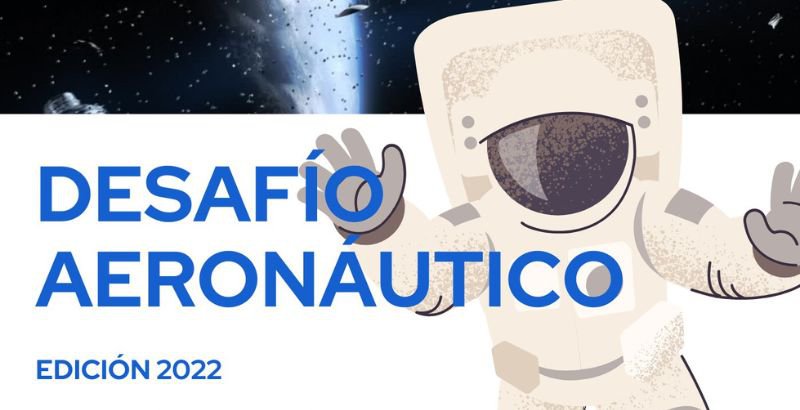Carlos Sánchez, Marina de Brito and Juan Alberto García, students at the Universidad Europea, have received the third prize for their ‘PAGMAC’ project - a waste-collecting vehicle.

Carlos Sánchez, Marina de Brito and Juan Alberto García, students at the Universidad Europea, have received the third prize at the “Aeronautical Challenge 2022” competition with their ‘PAGMAC’ project - a waste-collecting vehicle.
Ten teams from universities around the country gathered at the Spanish Institute of Engineering for the final round of the competition. All entries competed to solve the challenge of ‘problems generated due to waste in space’ and the search for alternatives to minimise the risks associated with this issue.
The jury, consisting of José Manuel Hesse (spokesperson for the COIAE and the AIAE), Eladio Manuel González Machín (President of the AIAE Delegation in Castilla and León) and Alejandro Herrera Velasco (Secretary of the COIAE and the AIAE); witnessed first-hand the high standard of work on show, impressed by the originality and creativity embodied in the ideas put forward by the participants. Finally, they awarded third prize to the students from the Universidad Europea for their PAGMAC vehicle which can remove large quantities of waste.
The main aim of the study is to find a possible correlation between levels of dental anxiety and the physiological parameters.
The professors Gabriela Gil-Abando, Paula Medina, Carolina Signorini, Elisabeth Casañas, Natalia Navarrete and Marta Muñoz-Corcuera, of the Department of Clinical Odontology at the Universidad Europea, have published the articleAssessment of Clinical Parameters of Dental Anxiety during Noninvasive Treatments in Dentistry.
The main aim of the study is to find a possible correlation between levels of dental anxiety and the physiological parameters associated with this issue. Furthermore, the article attempts to study the evolution of blood pressure and heart rate during non-invasive dental treatments (which do not require anaesthesia). A total of 200 patients took part in the study, attending a University clinic to receive dental treatment without local anaesthetic.
Dental anxiety is a significant issue for patients. According to the professors, “an anxious patient is a potential source of complications in a dentist’s consultation”. It is quite stressful for many patients to go to the dentist no matter what type of intervention they receive. The study aimed to establish a route map for the dentist and other acting professionals to help reduce any dental anxiety which patients may experience in the dentist’s consultation. This research study concluded that there was a relationship between the level of dental anxiety and time of treatment.